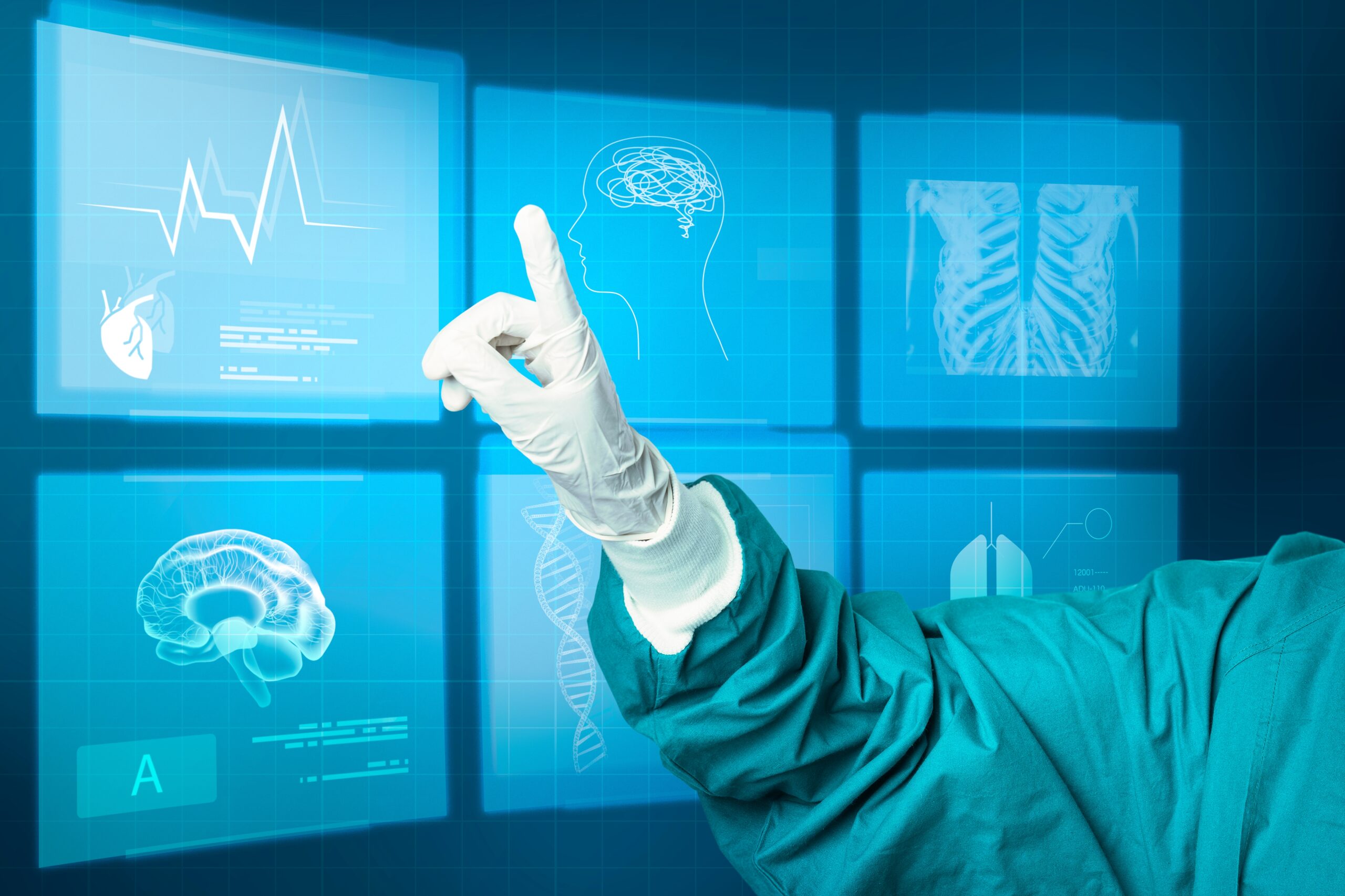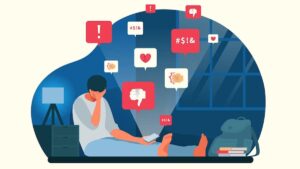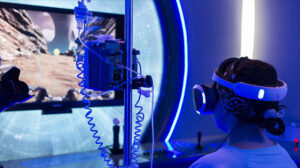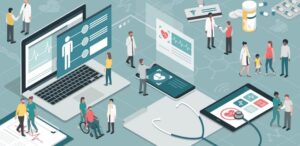Tech medicine: into a new reality
Thanks to technology, medicine is moving towards a new reality, where access will be easier and diagnoses more accurate, revolutionizing the healthcare industry.

Hand in medical glove pointing to virtual screen medical technology
In 2020, the world was hit by the SARS-CoV-2 pandemic, or better known as Coronavirus. This itself transformed our society, modifying traditional patterns, from going to the supermarket, attending classes or visiting our relatives.
Technological advances have generated many advantages at a societal level, one of them being their implementation in healthcare, especially at times when the crisis reached its peak and patients were forced to stay at home, making it impossible for them to attend their medical appointments in person. This was a turning point for them as remote consultations began to take over.
At this point, the healthcare industry was forced to be crossed by new technologies. At the time of hospitals’ collapse, technologies such as Artificial Intelligence, were of great help and a solution, since it avoided crowds in a place where the possibility of contagion was extremely high. According to the AMA (American Medical Association), “The percentage of physicians using virtual visits grew from 14% in 2016 to 80% in 2022” and in turn, physicians using remote monitoring devices grew from 12% to 30%. In many countries around the world, the implementation of softwares for the detection of coronavirus and the follow-up of their patients was a complement and support for the doctors who could not cope. Telemedicine became a first option for high-risk patients who could not leave their homes.
AI was not only used for teleconsultations, but also for the detection of early diagnosis of diseases, whether complex or not, with the help of Machine Learning. This complement provides computer tools that allow the process of information data coming from medical records as a human would do. The security and protection of each patient’s data, and its easy access is given through blockchain. This technology, in the area of health care, is responsible for providing a complete medical history, ensuring their privacy. Diseases such as cancer, Parkinson’s, among others, have been diagnosed and treated through these new technologies, through augmented reality models, real-time images or future prediction models.
Nowadays, the health industry is in constant transformation thanks to these technologies that are being discovered day by day and evolving their tools. Diagnoses are becoming more accurate due to the rapid access to patients’ medical records. AI contributes to lowering health inequality because, studies that were previously expensive, now, this new technology together with blockchain and machine learning, managed to lower costs, making more people able to access these studies.




